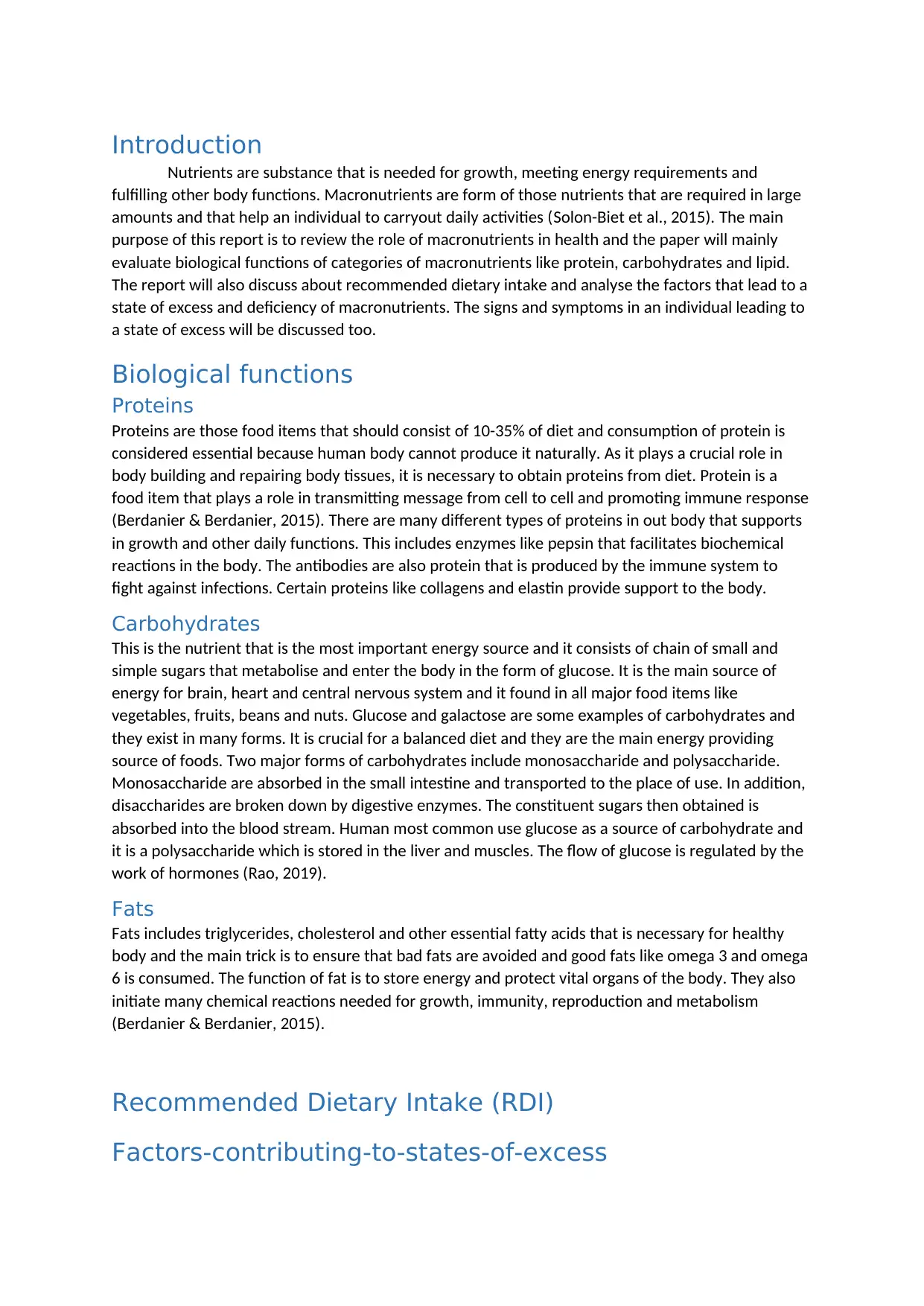Human Nutrition (NUTR2001) - Macronutrients and Health Report
VerifiedAdded on 2022/09/08
|4
|649
|24
Report
AI Summary
This report, prepared for NUTR2001, explores the critical role of macronutrients – proteins, carbohydrates, and fats – in human health and metabolism. It delves into their biological functions, including how proteins support tissue repair and immune responses, carbohydrates provide energy, and fats store energy and protect organs. The report outlines recommended dietary intakes, examines factors contributing to both excess and deficiency of these macronutrients, and discusses the associated signs and symptoms. The content includes a review of relevant literature, providing a comprehensive overview of macronutrients and their impact on overall well-being. This assignment is a valuable resource for students studying human nutrition, offering insights into the importance of a balanced diet and the consequences of macronutrient imbalances.
1 out of 4











![[object Object]](/_next/static/media/star-bottom.7253800d.svg)